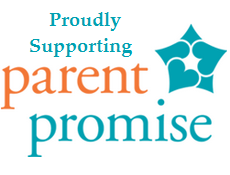Selling a fire-damaged home is no small feat, especially in a competitive real estate market like Colorado’s. Whether your property was partially affected by a small fire or severely damaged, finding the right buyer and closing the deal can seem daunting. However, with the right approach and understanding of the local market, you can successfully sell your fire-damaged property. In this article, we’ll explore how to navigate the Colorado real estate market and the steps you can take to sell your fire-damaged home.
1. Assess the Damage and Understand Your Options
The first and most important step is to assess the extent of the damage. A professional fire damage inspection is critical in determining whether the home can be repaired or if it is better to sell the property as-is. Fire-damaged homes often have underlying structural damage that isn’t immediately visible, so it’s essential to hire a licensed inspector who specializes in fire-damaged properties.
Once you have a clear assessment, you have two main options:
- Repair and Sell: If the damage is minimal and you can afford repairs, fixing the home might increase its market value and attract more traditional buyers. However, repairs can take time and cost more than you expect, so it’s essential to calculate the return on investment.
- Sell As-Is: If the damage is extensive, or if you need to sell quickly, selling the property as-is might be the better option. This approach often appeals to real estate investors or buyers who specialize in flipping homes.
2. Understand Colorado’s Real Estate Market for Fire-Damaged Homes
Colorado’s real estate market is competitive, with high demand in cities like Denver, Boulder, and Fort Collins. Even though fire-damaged homes may not appeal to all buyers, there is a segment of the market specifically interested in purchasing distressed properties. These buyers are often real estate investors, contractors, or house flippers who are looking for homes they can repair and resell.
In areas where real estate demand is strong, even fire-damaged homes can attract interest if priced correctly and marketed well. Understanding this dynamic is key to navigating the market successfully.
3. Work with a Real Estate Agent Experienced in Distressed Properties
If you’re navigating the complexities of selling a fire-damaged home, it’s crucial to partner with a real estate agent who has experience in selling distressed properties. A realtor Advance NC who understands the local market and has connections with investors and buyers looking for renovation opportunities can make the selling process smoother and faster.
An experienced agent will help you:
- Set a competitive and realistic price based on the condition of your home and the current market.
- Market the property to the right buyers, such as investors and flippers, rather than traditional homebuyers who might shy away from fire-damaged properties.
- Handle negotiations and help you navigate the unique challenges that come with selling a home that needs repairs.
4. Set a Realistic Price
Pricing a fire-damaged home can be tricky. You want to ensure the price reflects the condition of the home while remaining competitive in the local market. Buyers interested in purchasing fire-damaged homes often expect a discount, given the cost of repairs they’ll need to undertake. The price should be attractive enough to catch the attention of investors but still fair based on the property’s potential value.
To determine the right price, consider:
- The extent of the fire damage.
- The cost of potential repairs (you can get estimates from contractors to factor into pricing).
- The current market value of similar homes in good condition in your area.
- The overall demand for properties in your local market.
5. Disclose the Damage Properly
Transparency is critical when selling a fire-damaged home in Colorado. Colorado real estate laws require sellers to disclose any known material defects, including fire damage, to potential buyers. You’ll need to be upfront about the damage the property has sustained, any repairs that have been made, and any outstanding issues that need to be addressed.
Providing this information upfront not only ensures you comply with the law but also builds trust with potential buyers. Buyers of distressed properties will appreciate honesty and clarity, which can make the sale process go more smoothly.
6. Market the Property to the Right Buyers
Marketing a fire-damaged property is different from marketing a traditional home. You’ll need to focus on attracting the right type of buyer—primarily real estate investors, contractors, or buyers looking for a project. Highlight the potential of the property rather than focusing solely on the damage.
Key features to highlight in your marketing include:
- The location of the property. If the home is in a desirable neighborhood, this can still be a major selling point, even with the damage.
- The size of the lot and the potential for rebuilding or renovation.
- The opportunities for buyers to add value to the property through repairs and updates.
Consider listing the property on real estate platforms that cater to investors or distressed property buyers. Additionally, working with a real estate agent who has a network of investor clients can help you connect with serious buyers quickly.
7. Consider a Cash Buyer for a Quick Sale
One of the fastest ways to sell a fire-damaged property is to work with a cash buyer. Cash buyers, particularly investors and house flippers, are often more willing to purchase homes as-is and don’t have to wait for financing approval. This can speed up the closing process significantly.
Cash buyers are often looking for properties they can purchase at a discount, fix up, and resell for a profit. While you may need to sell for less than market value, this can be an efficient solution if you’re looking for a quick sale.
Many cash buyers and investors specialize in purchasing fire-damaged homes. You can connect with these buyers by working with companies or investors that advertise “I Buy Fire Damaged Houses” services. These buyers are familiar with the complexities of fire-damaged properties and can provide fast, no-obligation offers, helping you close the deal more quickly.
8. Be Prepared for Negotiations
When selling a fire-damaged home, be prepared for negotiations. Buyers will often seek to lower the price based on the cost of repairs, so it’s essential to know the value of your home and have realistic expectations. If you’ve already done some minor repairs or cleanup, highlight these improvements to justify your asking price.
Having a clear understanding of repair costs and potential resale value can give you more leverage in negotiations, especially if you’re working with investors who are looking for a return on their investment.
9. Closing the Deal
The closing process for a fire-damaged property is similar to any other real estate transaction, but with a few added considerations. Ensure that all necessary documentation is in place, including disclosure forms, inspection reports, and any contractor estimates for repairs.
If you’re working with a cash buyer, the closing process can move quickly, often within a few weeks. If the buyer is obtaining financing, be aware that some lenders may have stricter requirements for fire-damaged homes, which could affect the closing timeline.
Navigating the Colorado real estate market to sell a fire-damaged home can be challenging, but it’s entirely possible with the right strategy. Whether you choose to repair the home or sell it as-is, understanding the market, working with an experienced real estate agent, and marketing the property effectively are key to finding the right buyer.
By setting a realistic price, targeting investors and cash buyers, and being transparent about the damage, you can successfully sell your fire-damaged home in Colorado and move forward with confidence. With the right approach, you can turn a challenging situation into a positive outcome.


